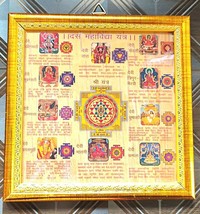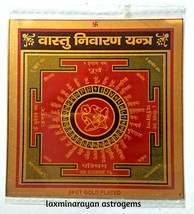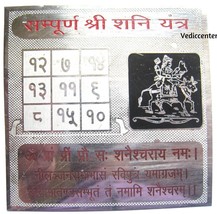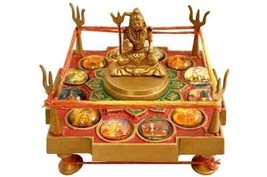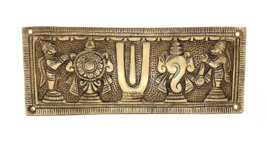Dus MahaVidya Yantra Ten Avatars of Goddes and 50 similar items
Free Shipping
Dus MahaVidya Yantra Ten Avatars of Goddes Durga Shakti Printed on Bhoj Patra
$33.25
View full item details »
Shipping options
Estimated to arrive by Mon, May 19th.
Details
FREE via International Shipping (2 to 3 weeks) to United States
Ships from
India

Offer policy
OBO - Seller accepts offers on this item.
Details
Return policy
Full refund available within 30 days
Purchase protection
Payment options
PayPal accepted
PayPal Credit accepted
Venmo accepted
PayPal, MasterCard, Visa, Discover, and American Express accepted
Maestro accepted
Amazon Pay accepted
Nuvei accepted
View full item details »
Shipping options
Estimated to arrive by Mon, May 19th.
Details
FREE via International Shipping (2 to 3 weeks) to United States
Ships from
India

Offer policy
OBO - Seller accepts offers on this item.
Details
Return policy
Full refund available within 30 days
Purchase protection
Payment options
PayPal accepted
PayPal Credit accepted
Venmo accepted
PayPal, MasterCard, Visa, Discover, and American Express accepted
Maestro accepted
Amazon Pay accepted
Nuvei accepted
Item traits
| Category: | |
|---|---|
| Quantity Available: |
Only one in stock, order soon |
| Condition: |
New |
| Country/Region of Manufacture: |
India |
| Handmade: |
Yes |
| Modified Item: |
No |
| Religion: |
Hinduism |
Listing details
| Seller policies: | |
|---|---|
| Posted for sale: |
More than a week ago |
| Item number: |
1712465775 |
Item description
PRODUCT DESCRIPTION
YANTRA SIZE ? 7 INCH LENGTH X 7 INCH BREADTH
MATERIAL USED ? BHOJ PATRA SHEET ,LAMINATED FRAMED IN CARDBOARD
FREE INSTRUCTION MANUAL
Description :
The Ten Mahavidyas are known as Wisdom Goddesses. The
spectrum of these ten Goddesses covers the whole range of feminine divinity,
encompassing horrific Goddess?s at one end, to the ravishingly beautiful at the
other. Mahavidya means (Maha ? great; vidya ? knowledge) Goddesses of great
knowledge.
These Das Mahavidya Goddesses are:
Kali (the Eternal Night) : The first Mahavidya is Kali.
Seated on a corpse, greatly terrifying, laughing loudly, with fearful fangs,
four arms holding a cleaver, a skull, and giving the mudras bestowing boons and
dispelling fear, wearing a garland of skulls, her tongue rolling wildly,
completely naked (digambara ? clad in the directions), with just a garland of
demon-hands round her waist, with heaped locks of a black cascade of hair. Thus
one should meditate on Kali, dwelling in the centre of the cremation ground.
Tara (the Compassionate Goddess) :Tara is the second of the
mahavidyas. She is described as seated in the pratyaaleerrha asana, on the
heart of a corpse, supreme, laughing horribly, holding cleaver, blue lotus,
dagger and bowl, uttering the mantra Hum, coloured blue, her hair braided with
serpents, the Ugratara. She is the bestows all supernatural powers. She is the
tantric form of the Goddess Saraswati.
Tripura-Sundari (the Goddess who is Sixteen Years Old) : The
third Mahavidya is Shodashi (16-year-old lass), also known as Tripura-Sundari
and Lalita, among a string of other names. She is the zenith of the creative
cycle when the entire universe, like a flower, is in full bloom. She is the
chief deity of the Sri Vidya form of worship, and is contacted either in the
central circuit of the Sri Yantra, or in her own yantra, the Nava-Yoni Chakra.
Her anthropomorphic qualities are brilliancy, manifestation, sweetness, depth,
fixity, energy, grace, and generosity.
Bhuvaneshwari (the Creator of the World) : Means the Queen
of the Universe, Maya, power of love, peace within, as void. She is like the
red rays of the rising sun, with the moon as her diadem, and with three eyes, a
smiling face, bestowing boons, holding a goad, a noose and dispelling fears. On
the right side of Bhuvaneshvari, who in the heavens, on earth, and in the
underworlds is known as the Adya, worship Tryambaka. She is the fourth
Mahavidya.
Chhinnamastaa (the Goddess who cuts off her Own Head) : The
fifth Mahavidya, Chhinnamastaa, looks like the red hibiscus. Her left foot forward
in battle, she holds her severed head and a scimitar. Naked, she drinks
voluptuously the stream of the blood nectar flowing from her beheaded body,
along with her two female celestial companions. The jewel on her forehead is
tied with a serpent. She has three eyes. Her breasts are adorned with lotuses.
Inclined towards lust, she sits erect above the god of love ? Madana, who shows
signs of lustfulness, engaged in the act of love with his consort Rati. The
image of Chinnamasta is a composite one, conveying reality as an amalgamation
of sex, death, creation, destruction and regeneration. It is stunning
representation of the fact that life, sex, and death are an intrinsic part of
the grand unified scheme that makes up the manifested universe.
Bhairavi (the Goddess of Decay) : Tripura Bhairavi is
Supreme Energy, Supreme Goddess of speech, as Tapas, as woman warrior. Her head
garlanded with flowers, she resembling the red rays of 1,000 rising suns,
smeared with red, holding milk, book, dispelling fears and giving boons with
her four hands, large three eyes, beautiful face with a slow smile, wearing
white gems. Bhairavi embodies the principle of destruction and arises or
becomes present when the body declines and decays. She is an ever-present
goddess who manifests herself in, and embodies, the destructive aspects of the
world. Destruction, however, is not always negative, creation cannot continue
without it.
Dhoomavati (the Goddess who widows Herself) : The colour of
smoke (?dhoom?), wearing smoky clothes, holding a winnowing basket, dishevelled
clothes, deceitful, always trembling, with slant eyes, inspiring fear,
terrifying, sitting in a chariot, with the symbol of a raven on her
chariot-flag. Symbolically, she has devoured her own husband Lord Shiva in hunger,
and hence, in the form of a lustreless widow. This symbolises the supremacy of
the Devi (Nature) over all other forces (even Shiva, who himself is the cosmic
force of destruction). She is the great death of the death himself. She is the
embodiment of ?unsatisfied desires?. Her status as a widow itself is curious.
She makes herself one by swallowing Shiva, an act of self-assertion, and
perhaps independence.
Bagalamukhi (the Goddess who seizes the Tongue) : Bagala or
Bagalamukhi is the eighth Mahavidya in the famous series of the 10
Mahavidyas.She is identified with the second night of courage and is the power
or Shakti of cruelty. She is described as the Devi with three eyes, wearing
yellow clothes and gems, moon as her diadem, wearing champaka blossoms, with
one hand holding the tongue of an enemy and with the left hand spiking him,
thus should you meditate on the paralyser of the three worlds. Bagalamukhi
means ?The Crane-Headed One?.
Matangi (the Goddess who Loves Pollution) : Dusky, beautiful
browed, her three eyes like lotuses, seated on a jewelled lion-throne,
surrounded by gods and others serving her, holding in her four lotus-like hands
a noose and a sword, a shield and a goad, thus I remember Matangi, the giver of
results, the Modini. Texts describing her worship specify that devotees should
offer her uccishtha (leftover food) with their hands and mouths stained with
leftover food; that is, worshippers should be in a state of pollution, having
eaten and not washed. This is a dramatic reversal of the usual protocols. She
is the ninth Mahavidya.
Kamala (the Goddess of creation, sustenance and prosperity)
: Kamala, the tenth, or the last of the Mahavidyas, is with a smiling face. Her
beautiful lily-white hands hold two lotuses, and show the mudras of giving and
dispelling fear. She is bathed in ambrosia by four white elephants and stands
upon a beautiful lotus. She is the real embodiment of Goddess Lakshmi
(?Kamalekamini?), the consort of Lord Vishnu. The name Kamala means ?she of the
lotus? and is a common epithet of Goddess Lakshmi. Lakshmi is linked with three
important and interrelated themes: prosperity and wealth, fertility and crops,
and good luck during the years to come.
The worship of Das mahavidyas provides bhoga (fulfillment of
materialisitic desires) and moksha (spiritual liberation).
|
Why are we showing these items?
Booth
Laxminarayan Astrogems |
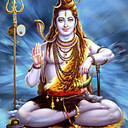
|

-
Refine your browsing experience
We can show you more items that are exactly like the original item, or we can show you items that are similar in spirit. By default we show you a mix.
This item has been added to your cart
 Dus MahaVidya Yantra Ten Avatars of Goddes Durga Shakti Printed on Bhoj Patra added to cart.
Only one available in stock
Dus MahaVidya Yantra Ten Avatars of Goddes Durga Shakti Printed on Bhoj Patra added to cart.
Only one available in stock
View Cart or continue shopping.
 Please wait while we finish adding this item to your cart.
Please wait while we finish adding this item to your cart.
Get an item reminder
We'll email you a link to your item now and follow up with a single reminder (if you'd like one). That's it! No spam, no hassle.
Already have an account?
Log in and add this item to your wish list.




